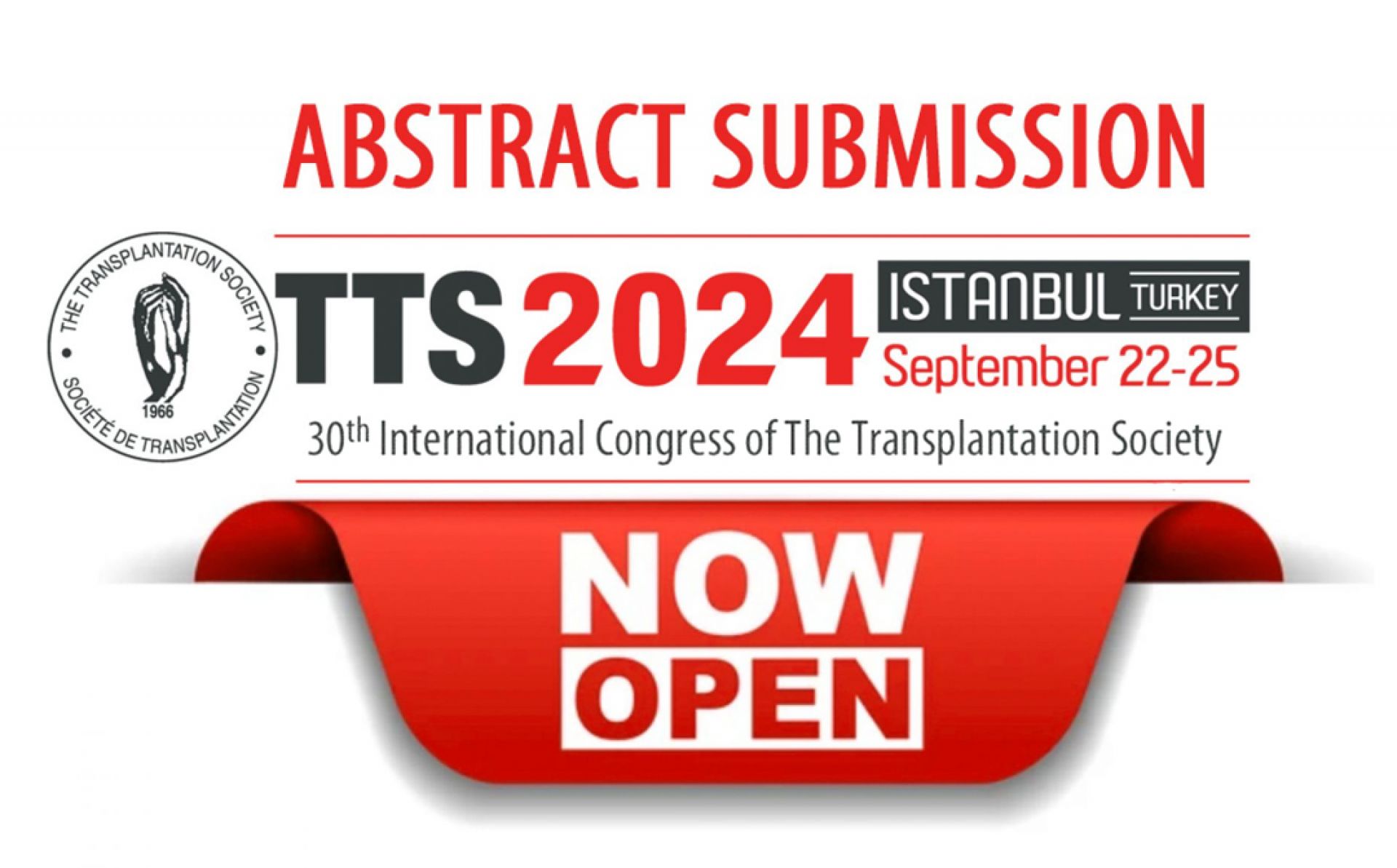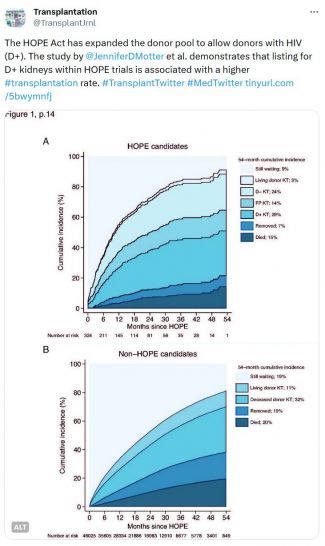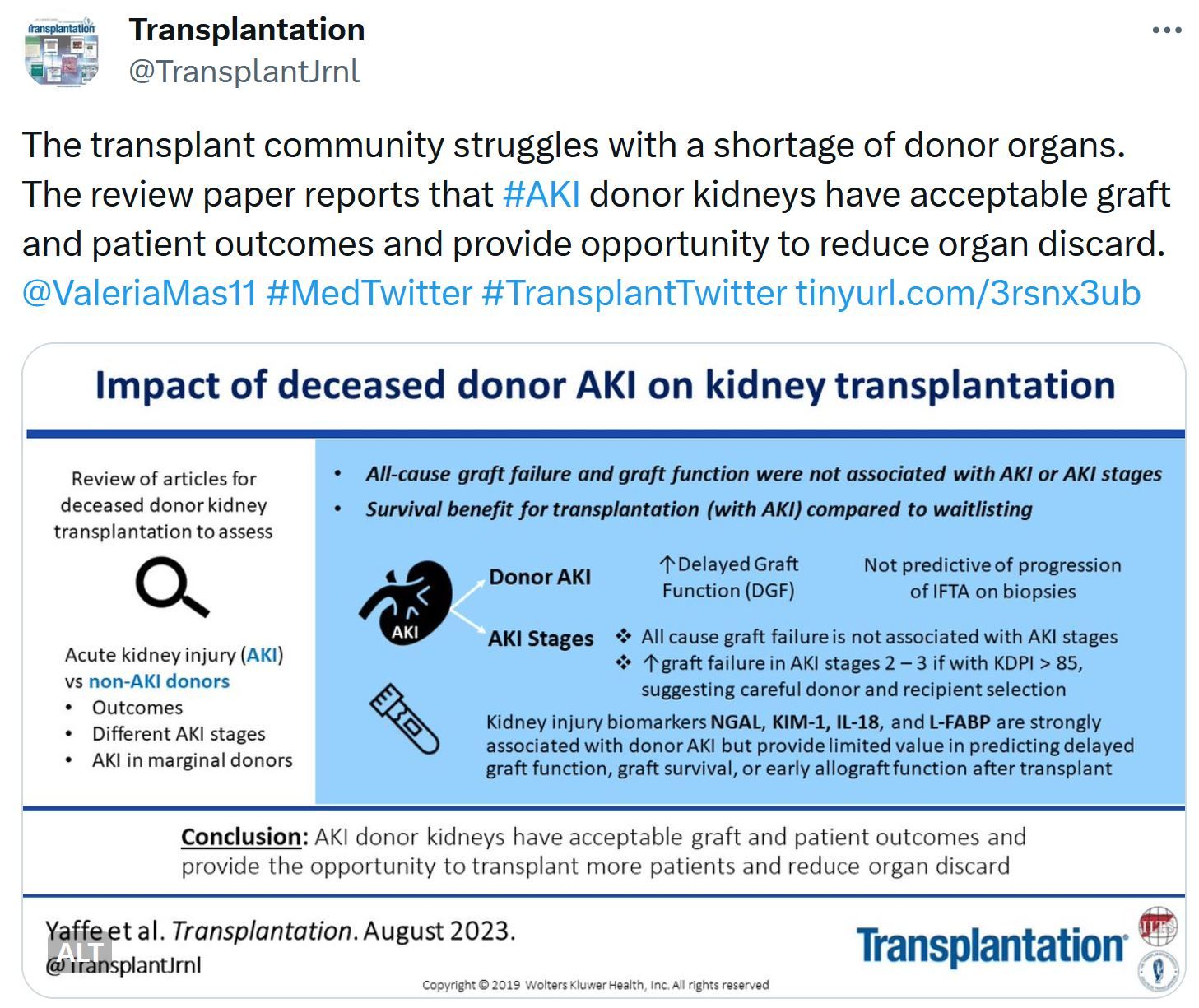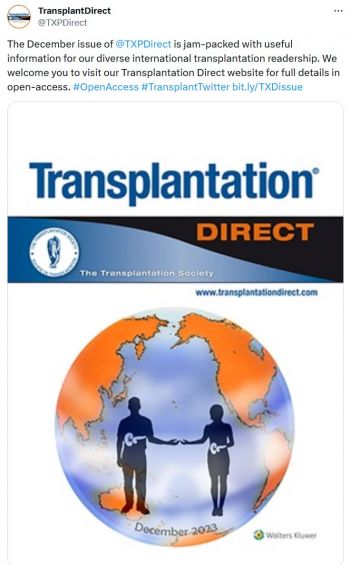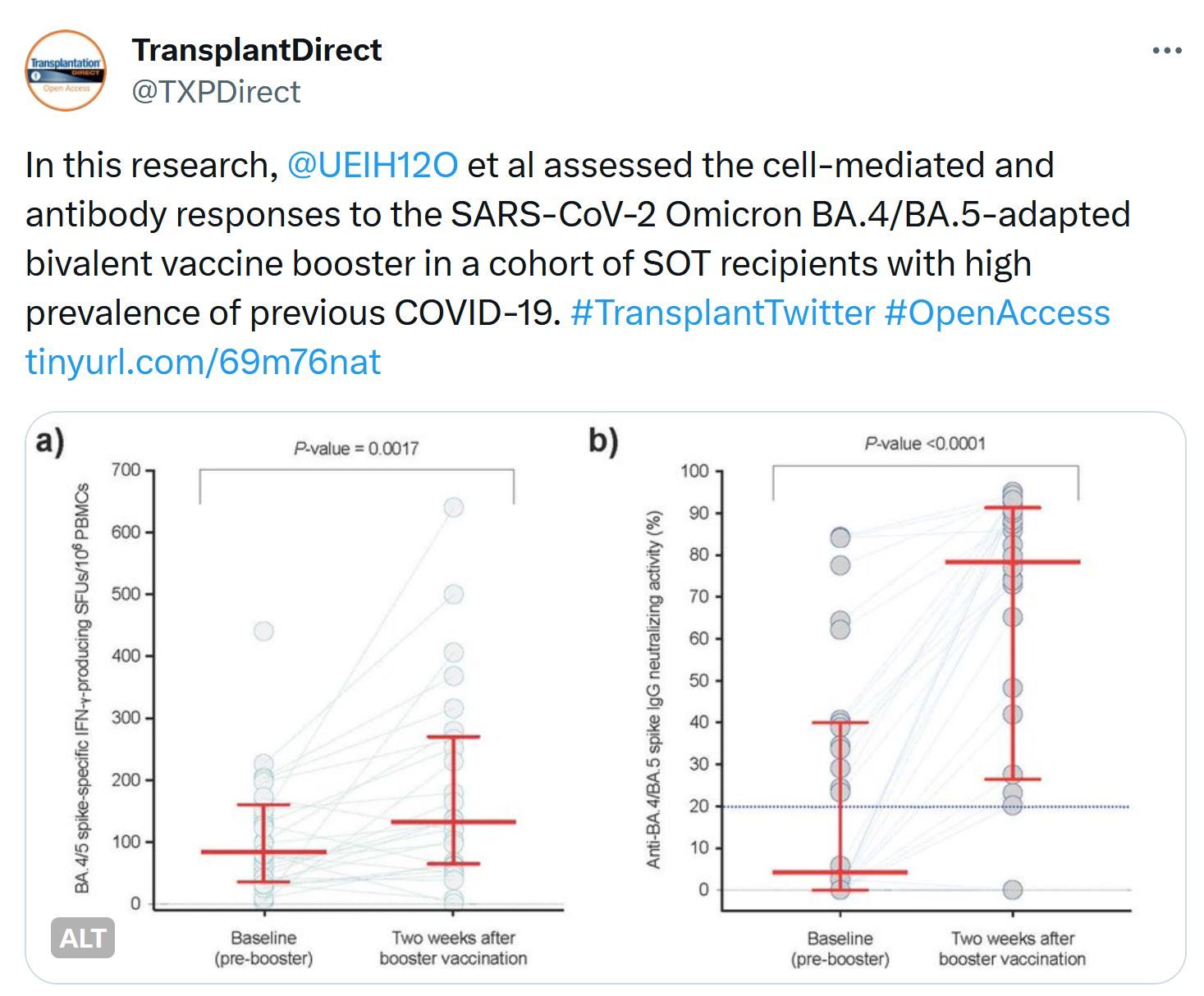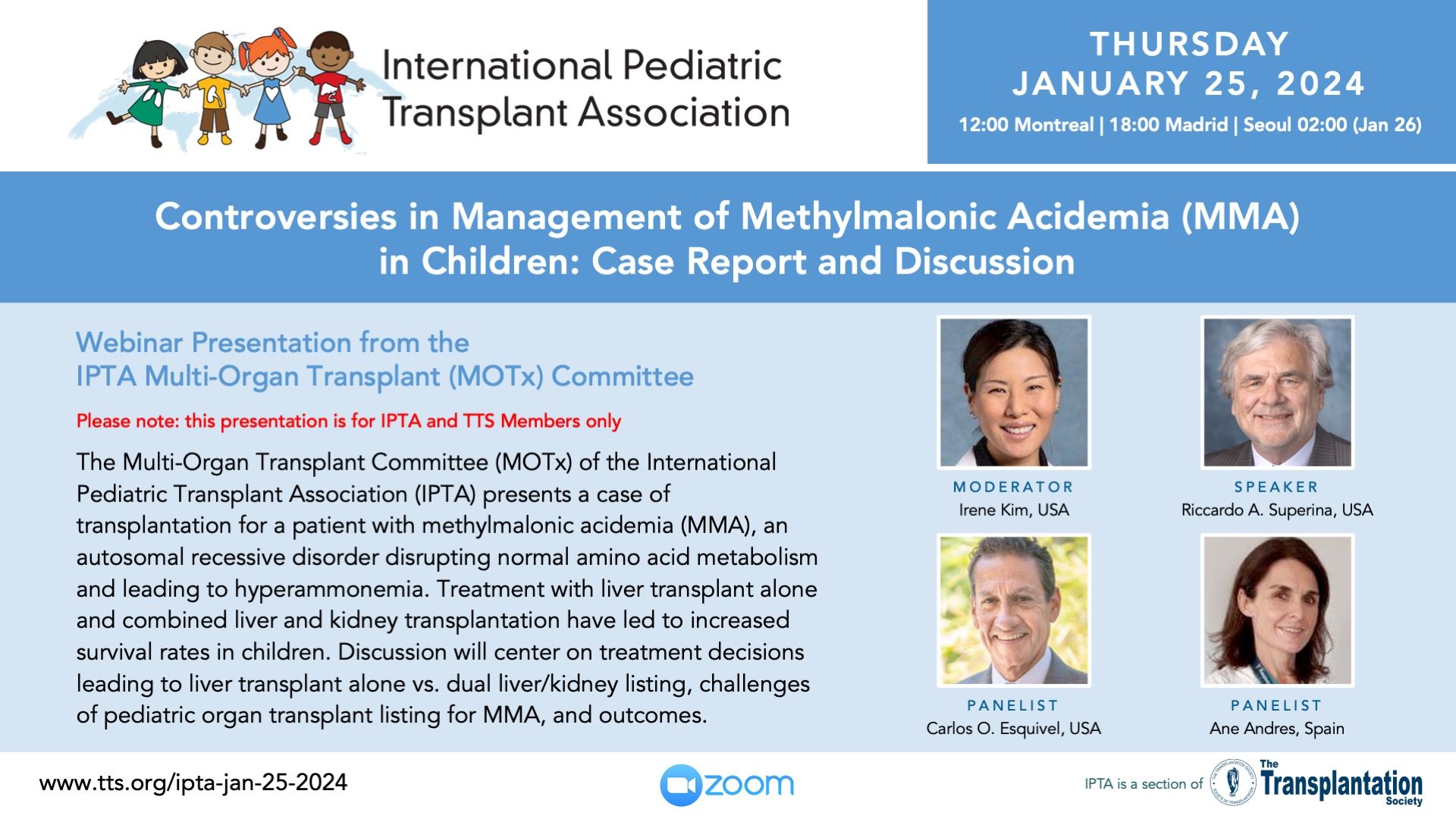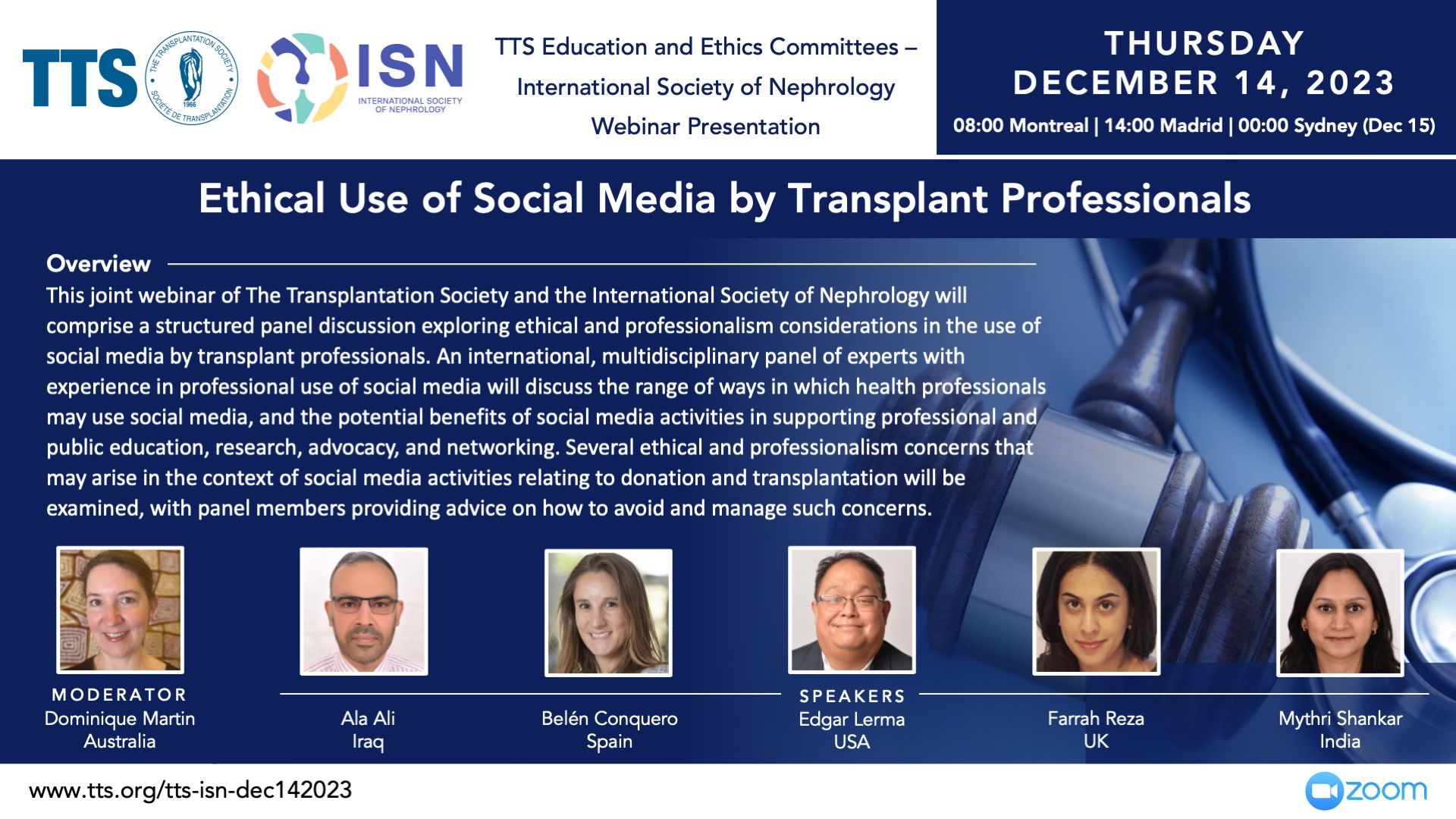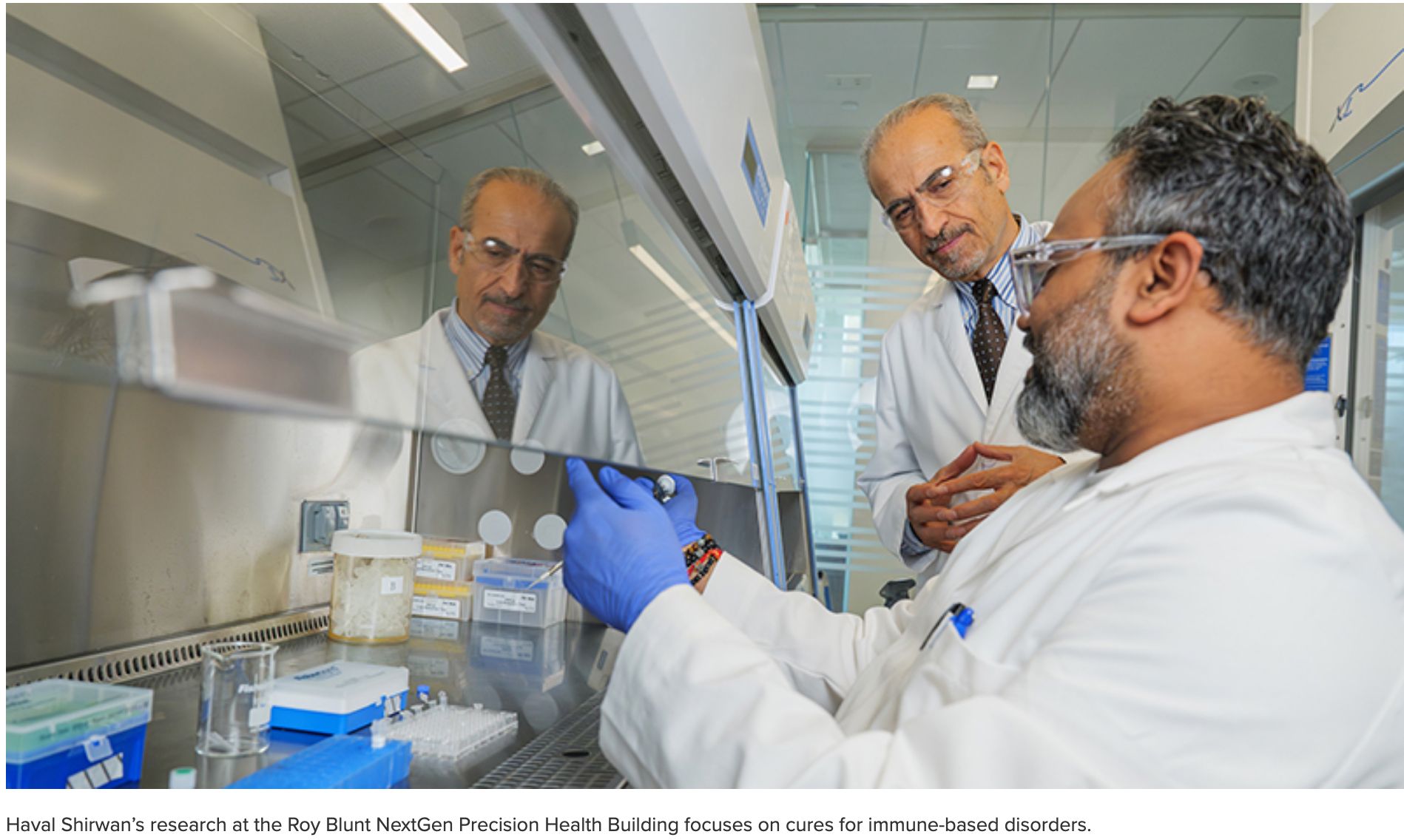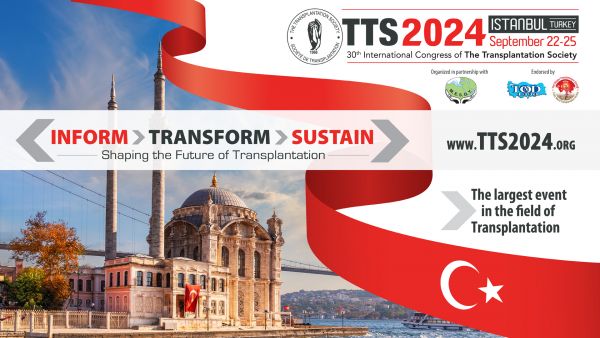
TTS 2024 - Program Update
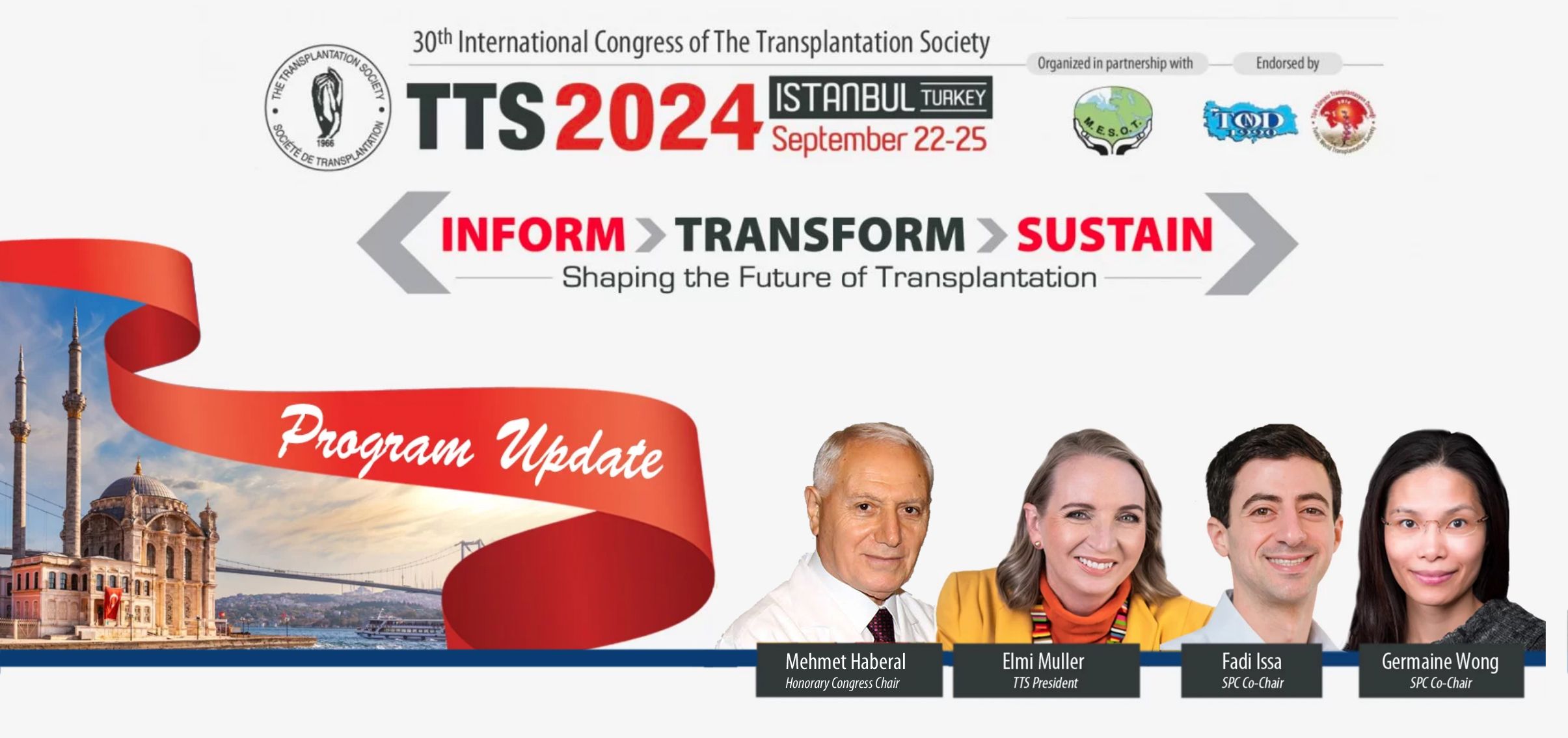
Upcoming Webinar Presentation
Please note: this presentation is for IPTA and TTS Members only
Women in Transplantation 2024 Research Grants

WIT is delighted to announce that requests for applications are now open for the 2024-2026 Research Fellowship Grants for Research in Gender and Sex in Transplantation.
This will be the fourth year that we are offering research fellowships in sex and gender in solid organ transplantation. These fellowships will support the next generation of scientists, furthering our understanding of the importance of sex and gender in transplantation. This is a growing field of interest and the more we learn the closer we are to applying these findings to clinical care to benefit patients and donors.
Member and Section Spotlight
TTS Call for Nominations

We are now accepting nominations for three (3) Officer positions and nine (9) Councilors-at-large positions representing the Regions.
TTS Seeking a New Editor-in-Chief for Transplantation and Transplantation Direct
Antibody Mediated Rejection (AMR) Management: Multi-Disciplinary Team (MDT) Conference survey

Contact
Address
The Transplantation Society
International Headquarters
740 Notre-Dame Ouest
Suite 1245
Montréal, QC, H3C 3X6
Canada
Используйте Вавада казино для игры с бонусом — активируйте промокод и начните выигрывать уже сегодня!

